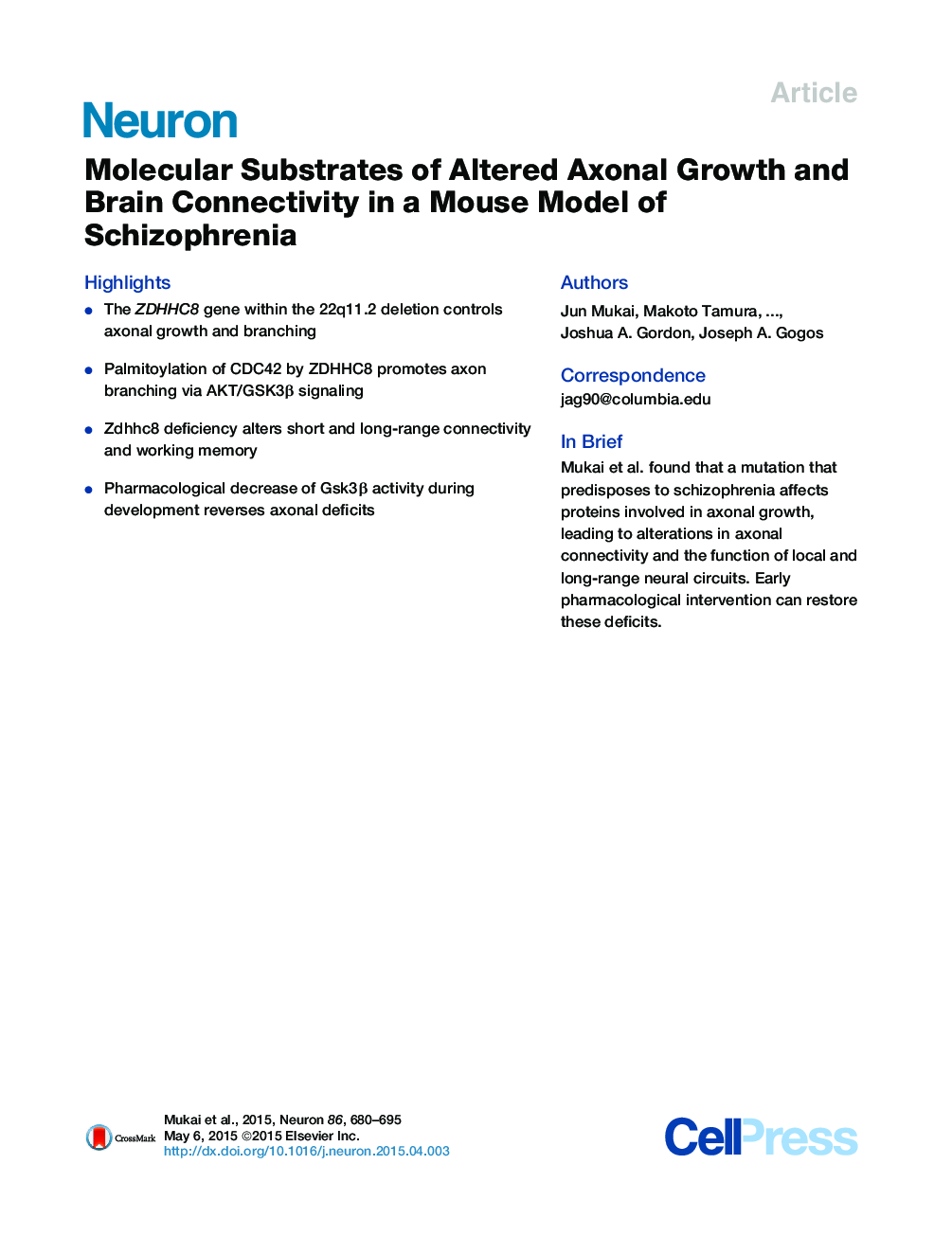| Article ID | Journal | Published Year | Pages | File Type |
|---|---|---|---|---|
| 4320931 | Neuron | 2015 | 16 Pages |
•The ZDHHC8 gene within the 22q11.2 deletion controls axonal growth and branching•Palmitoylation of CDC42 by ZDHHC8 promotes axon branching via AKT/GSK3β signaling•Zdhhc8 deficiency alters short and long-range connectivity and working memory•Pharmacological decrease of Gsk3β activity during development reverses axonal deficits
Summary22q11.2 deletion carriers show specific cognitive deficits, and ∼30% of them develop schizophrenia. One of the disrupted genes is ZDHHC8, which encodes for a palmitoyltransferase. We show that Zdhhc8-deficient mice have reduced palmitoylation of proteins that regulate axonal growth and branching. Analysis of axonal projections of pyramidal neurons from both Zdhhc8-deficient and Df(16)A+/− mice, which model the 22q11.2 deletion, revealed deficits in axonal growth and terminal arborization, which can be prevented by reintroduction of active ZDHHC8 protein. Impaired terminal arborization is accompanied by a reduction in the strength of synaptic connections and altered functional connectivity and working memory. The effect of ZDHHC8 is mediated in part via Cdc42-dependent modulation of Akt/Gsk3β signaling at the tip of the axon and can be reversed by pharmacologically decreasing Gsk3β activity during postnatal brain development. Our findings provide valuable mechanistic insights into the cognitive and psychiatric symptoms associated with a schizophrenia-predisposing mutation.
